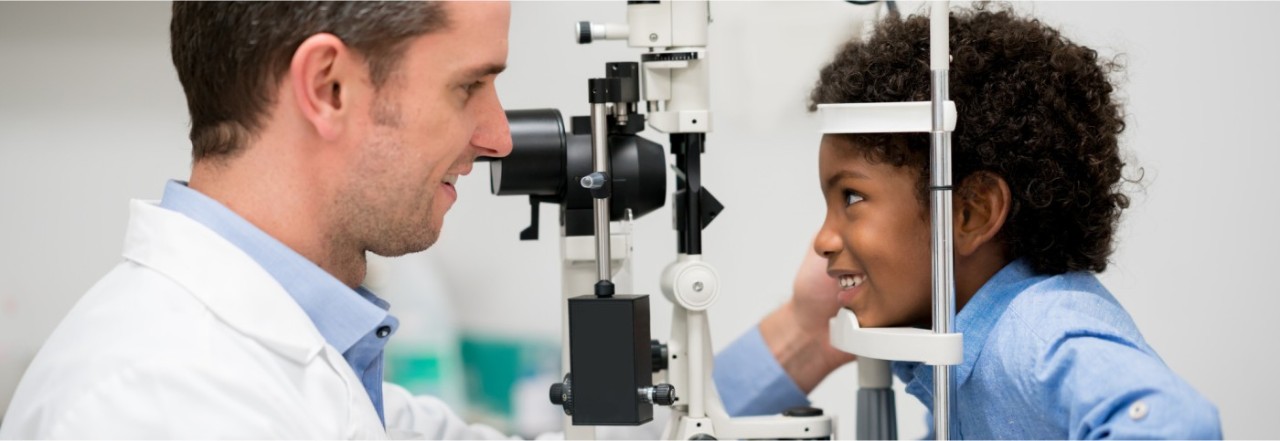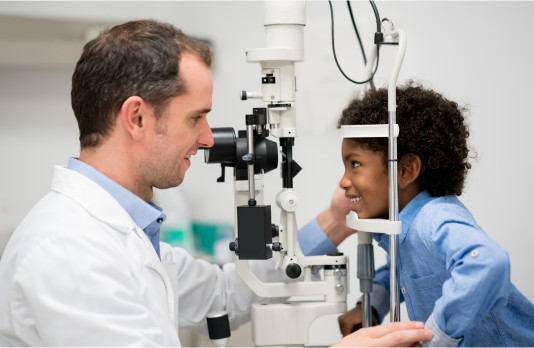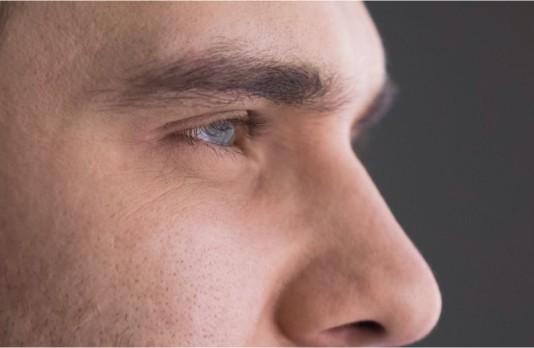Sé proactivo con la salud ocular de tu hijo

Cuando se trata de la salud de tu hijo, no pases por alto los ojos. La visión desempeña un papel importante en el aprendizaje, el desarrollo y la calidad de vida en general. De hecho, hasta el 80 % del aprendizaje es visual, por lo que controlar la salud ocular de tu hijo es una decisión inteligente que debes tomar como padre o madre.
Por qué es importante el cuidado temprano de la vista
Los problemas no corregidos, como miopía, hipermetropía y astigmatismo pueden provocar dolores de cabeza, fatiga ocular, problemas para leer e incluso problemas de comportamiento en la escuela. Los problemas oculares pueden afectar todos los aspectos de la vida, desde la lectura y la escritura hasta los deportes y las interacciones sociales. Si no se tratan, incluso pueden provocar pérdida de la visión a largo plazo o retrasos en el desarrollo. La detección temprana es clave para mantener una visión nítida y un buen desarrollo.
Fomentar hábitos oculares saludables
De recién nacidos a niños pequeños
Puedes ayudar a atraer la atención de los recién nacidos y niños pequeños con colores y patrones de alto contraste en juguetes y decoración. Dale tiempo a tu hijo para enfocarse en las cosas que lo rodean cuando se encuentre en nuevos ambientes y acerca objetos desde todos los ángulos para que tu hijo se sienta cómodo con un campo de visión más amplio. Jugar juegos, como el cucú y el juego de manos, puede ayudar a estimular la coordinación entre las manos y los ojos de los bebés, de la misma manera que un juego de captura puede hacerlo con un niño pequeño o en edad escolar.
Niños mayores y adolescentes
A medida que tus hijos crecen, concéntrate en limitar el tiempo frente a pantallas y fomentar el juego al aire libre. Si bien los estudios han demostrado que la luz azul de los dispositivos digitales no es peligrosa para los ojos, la visualización continua y en primer plano de estas pantallas puede causar fatiga ocular digital, una enfermedad que puede causar visión borrosa, ojos irritados y problemas de enfoque. Si tus hijos están usando mucho las pantallas, pídeles que sigan la regla 20-20-20: cada 20 minutos, mira algo a 20 pies de distancia por 20 segundos.
También debes alentarlos a jugar al aire libre. Además de los beneficios normales del juego al aire libre, como el ejercicio y el aumento de vitamina D, estar al aire libre les da la oportunidad de enfocarse en objetos lejanos. Al igual que la regla del 20-20-20, los ojos tienen la oportunidad de relajarse y usar diferentes músculos. Mientras juegan al aire libre, asegúrate de usar gafas protectoras cuando sea necesario, como gafas deportivas o gafas de sol con protección UV.
Cuándo programar revisiones y exámenes
Haz que las revisiones de la vista una parte regular de la rutina de salud de tus hijos. Una revisión de la vista es un examen de la vista eficiente, en el que un profesional del cuidado de la salud capacitado evalúa a tu hijo para detectar problemas de la vista y luego lo deriva para un examen integral si es necesario. Un examen integral de la vista puede incluir la dilatación de las pupilas, y puede permitir diagnosticar enfermedades. Lo realiza un optometrista u oftalmólogo.
Sigue el siguiente cronograma para las revisiones de la vista:
- Recién nacidos: revisión de su pediatra u otro profesional del cuidado de la salud capacitado para detectar indicadores básicos de salud ocular
- Niños menores de tres años: revisiones durante los exámenes regulares de niño sano
- Niños mayores y adolescentes: revisiones con su médico cada uno o dos años
Si notas problemas entre las revisiones, programa una revisión o examen separado.
Presta atención a las señales de advertencia
Los niños no siempre tienen el lenguaje necesario para describir problemas de visión, así que presta atención a la forma en que tu hijo interactúa con los objetos y cómo trata los ojos para identificar posibles síntomas. Considera lo siguiente:
- Mostrar desinterés en objetos o eventos lejanos
- Bizqueo, inclinar la cabeza, cubrir un ojo
- Frotarse los ojos con frecuencia, ojos llorosos sin causa, sensibilidad a la luz
- Sentarse inusualmente cerca de las pantallas o sostener libros cerca de la cara
- Quejarse de visión borrosa o dolores de cabeza
- Tener dificultades para enfocar o mover los ojos frecuentemente al leer
- Mala coordinación mano-ojo
Ser proactivo con la salud ocular de tu hijo lo prepara para el éxito en la escuela, los deportes y más allá. Con revisiones regulares, hábitos saludables y tu mirada atenta, puedes ayudarlo a ver un futuro más brillante.
Última actualización: abril de 2025
Artículos relacionados:
La información sobre salud bucal en este sitio web está destinada únicamente a fines educativos. Consulta a un dentista licenciado u otro profesional de la salud para cualquier pregunta relacionada con tu salud bucal.


